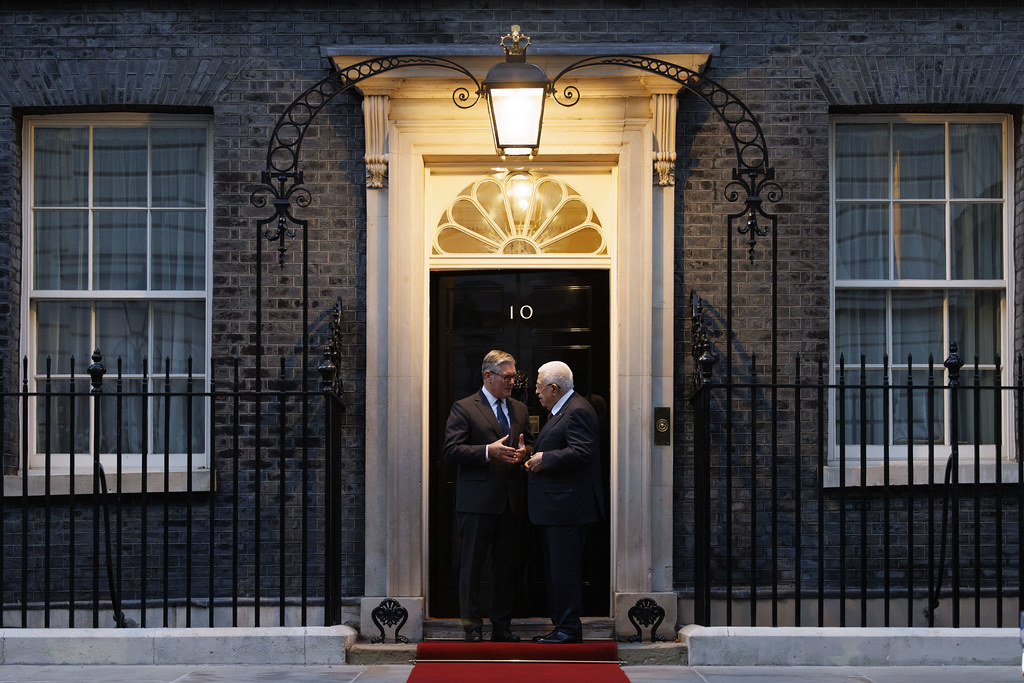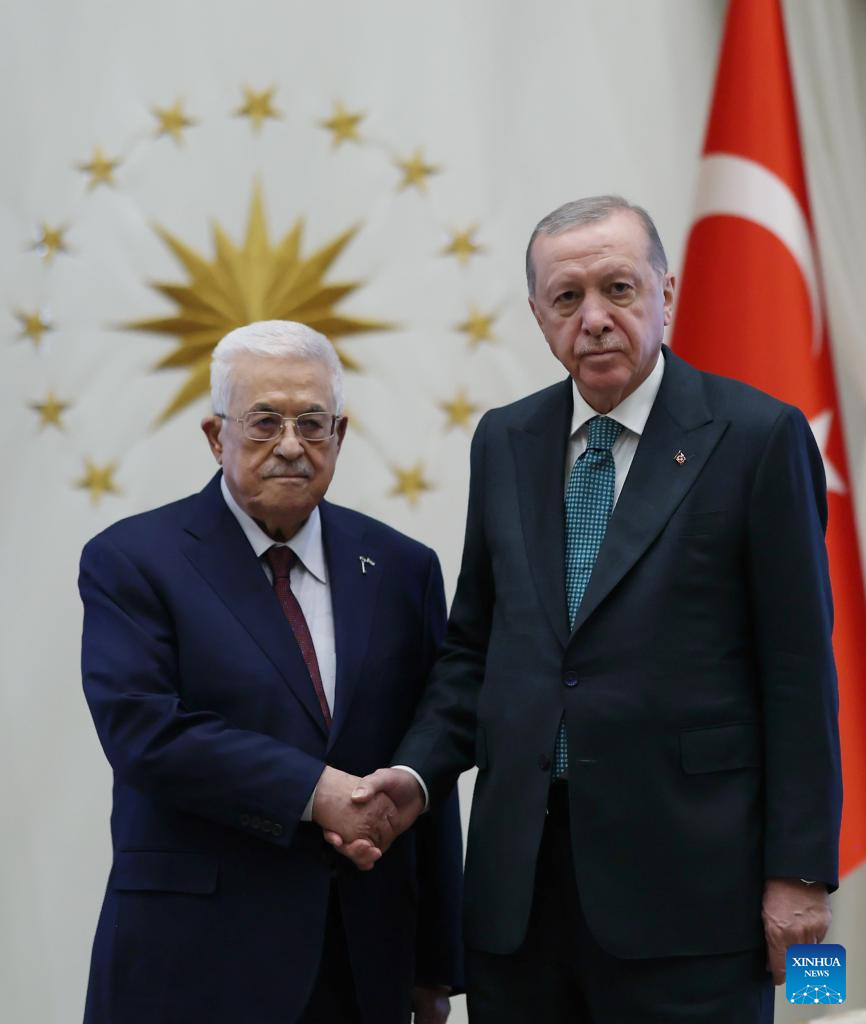British Prime Minister Sir Keir Starmer’s Move to Recognise Palestine Statehood Is A Move To Correct Balfour’s Historic Error … writes Kalip Anaz
From an Arab perspective, the announcement by British Prime Minister Keir Starmer to recognise the State of Palestine is not merely a diplomatic act. It is a long overdue correction to a century-old injustice first inflicted upon the Arab people of Palestine by Britain itself through the infamous Balfour Declaration of 1917.
For decades, Arabs have regarded the Balfour Declaration as a betrayal—a decision by a colonial power to gift land that did not belong to it, to a movement that intended to displace the indigenous people already living there. In this light, Starmer’s step represents not only a geopolitical shift but a moral acknowledgement that Britain’s historic policies fuelled one of the most protracted conflicts of the modern era.

The Balfour Declaration promised Zionists “a national home for the Jewish people” in Palestine, without the consent of its Arab majority inhabitants, who were dismissed as “non-Jewish communities.” This single act of imperial arrogance created the conditions for dispossession, war, and enduring suffering. For over a century, Palestinians have lived under the shadow of that pledge, experiencing displacement in 1948, occupation in 1967, and an ever-tightening system of settlements and blockades in the decades since. For the Arab world, Balfour symbolises not only Britain’s betrayal of the Palestinians but also the West’s complicity in denying Arab rights to self-determination.
Today, as images of destruction, mass displacement, and famine emerge from Gaza, Arabs cannot help but recall how the seeds of this catastrophe were planted in that colonial letter. Starmer’s recognition of Palestinian statehood, therefore, is seen as Britain finally beginning to confront its historic responsibility. It is not charity, nor a favour to the Palestinians—it is a partial redress of a century-long injustice.
The Arab position has long been clear: Palestine is a state in waiting, recognised by the majority of the world’s nations, yet denied sovereignty by Israeli occupation and Western hesitancy. For too long, Britain hid behind the argument that recognition should only come “at the moment of maximum impact” in peace negotiations. But what peace process exists today? Decades of failed talks, Israeli intransigence, and the relentless expansion of settlements have killed the Oslo spirit. Arabs see Britain’s recognition not as premature but as painfully late.
Starmer’s move, under immense pressure from worsening humanitarian conditions, carries deep symbolic importance. Arabs know symbolism matters in international relations. The recognition affirms the Palestinians’ right to exist as a people with a homeland, rather than as a perpetual refugee population or a political bargaining chip. It tells the world that Palestine is not an aspiration but a legitimate state unjustly suppressed.

Critics in Israel and Washington argue that recognition “rewards terror” or emboldens Hamas. From the Arab view, this framing is disingenuous. Palestinians are not to be defined by Hamas, nor should their collective rights be held hostage to the actions of one group. The demand for recognition predates Hamas by decades, rooted in international law and justice. Starmer’s insistence that Hamas has no role in governance reflects a Western concern, but what matters more is that Palestinians as a whole are being acknowledged as a nation.
Arabs are acutely aware that Britain’s hand in Palestine did not end with Balfour. During its Mandate from 1920 to 1948, Britain facilitated Zionist immigration while suppressing Arab resistance, laying the groundwork for the Nakba—the catastrophe that saw over 700,000 Palestinians expelled. Thus, when Britain finally recognises Palestine, Arabs see it as the empire correcting its own historic wrongdoing.
This act does not erase the past, but it signals an important shift. Britain is no longer hiding behind Washington’s lead or Israel’s veto. Instead, it is beginning to align with global opinion, particularly the Arab and Muslim worlds, who have long demanded Palestinian statehood. For Arabs, Starmer’s move is not only about Palestine—it is also about Britain’s credibility. A nation that once inflicted deep wounds is now taking steps, however modest, to heal them.
Across Arab capitals, the recognition will be welcomed as a rare moment where Western politics responds to moral urgency rather than geopolitical calculation. Arab societies have watched with horror as Gaza has been subjected to bombardment, siege, and famine. They have seen the expansion of illegal settlements in the West Bank threaten the viability of any future Palestinian state. They have listened to decades of Western leaders speak of a “two-state solution” while doing little to stop its destruction.
Starmer’s announcement, therefore, resonates because it is action rather than rhetoric. Arab commentators note that Spain, Ireland, and Norway moved in this direction last year. Now that Britain—the very nation that set this tragedy in motion—has followed, momentum may grow. France, Canada, Australia, and others could soon be pressed to act.
Yet Arabs are not naïve. Recognition alone will not end the occupation. Palestine remains without defined borders, full sovereignty, or control over its resources. Israeli leaders have already dismissed Britain’s decision and continue settlement expansion. Washington’s opposition underlines that the world’s most powerful broker still prioritises Israeli security over Palestinian freedom. From the Arab perspective, Starmer’s recognition is only a beginning. What matters now is sustained pressure—halting settlements, ending the siege of Gaza, and reviving serious negotiations that guarantee Palestinian rights.
Ultimately, Arabs interpret Starmer’s decision as an overdue but courageous act. It corrects, in part, the historic mistake of the Balfour Declaration, which disregarded Arab identity and sovereignty. It affirms that Palestinians are not merely subjects of charity or pawns in geopolitics, but a nation entitled to dignity and statehood.
The recognition will not undo the Nakba, nor will it immediately end occupation. But it shifts the moral landscape. For Arabs, it represents a message that Britain, after more than a century, has finally begun to reckon with its role in Palestine’s tragedy. It is not the end of the struggle, but it is a signal that the tide of history is slowly, at last, bending toward justice.












